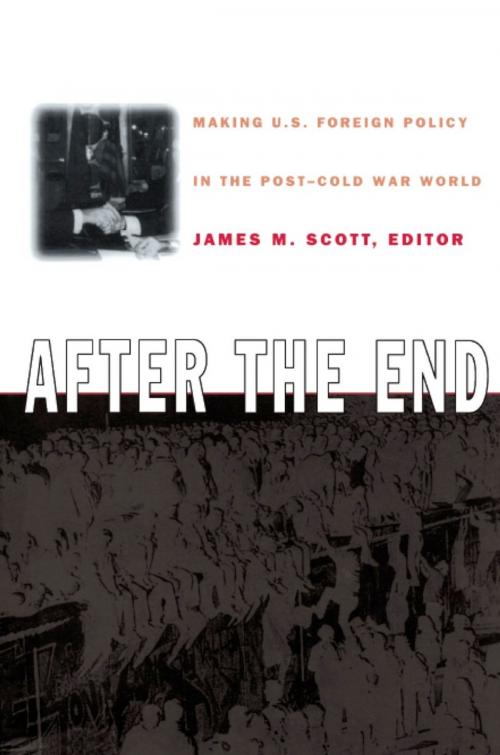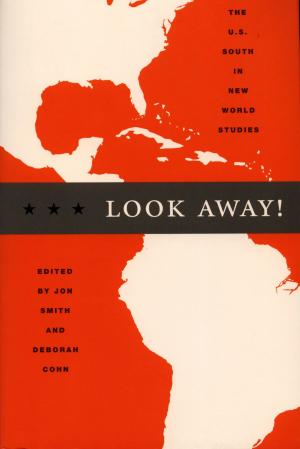After the End
Making U.S. Foreign Policy in the Post-Cold War World
Nonfiction, Social & Cultural Studies, Political Science, International, International Relations| Author: | A. Lane Crothers, Jerel Rosati, Stephen Twing, Christopher M. Jones | ISBN: | 9780822382157 |
| Publisher: | Duke University Press | Publication: | January 21, 1999 |
| Imprint: | Duke University Press Books | Language: | English |
| Author: | A. Lane Crothers, Jerel Rosati, Stephen Twing, Christopher M. Jones |
| ISBN: | 9780822382157 |
| Publisher: | Duke University Press |
| Publication: | January 21, 1999 |
| Imprint: | Duke University Press Books |
| Language: | English |
In the political landscape emerging from the end of the Cold War, making U.S. foreign policy has become more difficult, due in part to less clarity and consensus about threats and interests. In After the End James M. Scott brings together a group of scholars to explore the changing international situation since 1991 and to examine the characteristics and patterns of policy making that are emerging in response to a post–Cold War world.
These essays examine the recent efforts of U.S. policymakers to recast the roles, interests, and purposes of the United States both at home and abroad in a political environment where policy making has become increasingly decentralized and democratized. The contributors suggest that foreign policy leadership has shifted from White House and executive branch dominance to an expanded group of actors that includes the president, Congress, the foreign policy bureaucracy, interest groups, the media, and the public. The volume includes case studies that focus on China, Russia, Bosnia, Somalia, democracy promotion, foreign aid, and NAFTA. Together, these chapters describe how policy making after 1991 compares to that of other periods and suggest how foreign policy will develop in the future.
This collection provides a broad, balanced evaluation of U.S. foreign policy making in the post–Cold War setting for scholars, teachers, and students of U.S. foreign policy, political science, history, and international studies.
Contributors. Ralph G. Carter, Richard Clark, A. Lane Crothers, I. M. Destler, Ole R. Holsti, Steven W. Hook, Christopher M. Jones, James M. McCormick, Jerel Rosati, Jeremy Rosner, John T. Rourke, Renee G. Scherlen, Peter J. Schraeder, James M. Scott, Jennifer Sterling-Folker, Rick Travis, Stephen Twing
In the political landscape emerging from the end of the Cold War, making U.S. foreign policy has become more difficult, due in part to less clarity and consensus about threats and interests. In After the End James M. Scott brings together a group of scholars to explore the changing international situation since 1991 and to examine the characteristics and patterns of policy making that are emerging in response to a post–Cold War world.
These essays examine the recent efforts of U.S. policymakers to recast the roles, interests, and purposes of the United States both at home and abroad in a political environment where policy making has become increasingly decentralized and democratized. The contributors suggest that foreign policy leadership has shifted from White House and executive branch dominance to an expanded group of actors that includes the president, Congress, the foreign policy bureaucracy, interest groups, the media, and the public. The volume includes case studies that focus on China, Russia, Bosnia, Somalia, democracy promotion, foreign aid, and NAFTA. Together, these chapters describe how policy making after 1991 compares to that of other periods and suggest how foreign policy will develop in the future.
This collection provides a broad, balanced evaluation of U.S. foreign policy making in the post–Cold War setting for scholars, teachers, and students of U.S. foreign policy, political science, history, and international studies.
Contributors. Ralph G. Carter, Richard Clark, A. Lane Crothers, I. M. Destler, Ole R. Holsti, Steven W. Hook, Christopher M. Jones, James M. McCormick, Jerel Rosati, Jeremy Rosner, John T. Rourke, Renee G. Scherlen, Peter J. Schraeder, James M. Scott, Jennifer Sterling-Folker, Rick Travis, Stephen Twing















